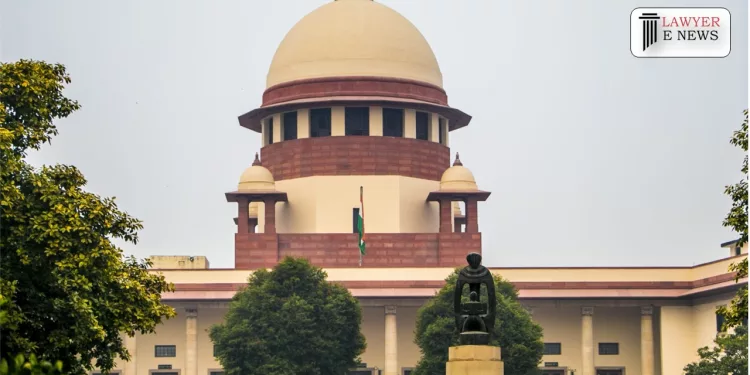Acquittal in Murder Case : ‘Suspicion Cannot Replace Proof Beyond Reasonable Doubt: Supreme Court

In a groundbreaking judgment delivered on August 7, 2023, the Supreme Court of India acquitted the accused in Criminal Appeal No. 465 of 2017, challenging their conviction based on circumstantial evidence. The bench comprising Justices B.R. Gavai and Prashant Kumar Mishra emphasized that “suspicion, however strong, cannot take the place of proof beyond reasonable doubt” while delivering the verdict.
The appeal challenged the judgment of the High Court of Delhi, which had upheld the conviction of the three accused under Section 302 read with Section 34 of the Indian Penal Code, 1860 (IPC), sentencing them to life imprisonment. The prosecution’s case rested heavily on circumstantial evidence, but the court found the evidence unreliable and inconsistent during cross-examination of key witnesses.
The judgment highlighted that “the prosecution must establish the circumstances from which the conclusion of guilt is drawn beyond reasonable doubt,” and the evidence presented by the prosecution failed to meet this standard. The court observed that the Call Detail Records (CDRs) used to place the accused at the scene of the incident were inadequate and lacked credibility. Additionally, the refusal of a Test Identification Parade (TIP) raised doubts about the reliability of witness identifications.
Citing the case of Sharad Birdhichand Sarda v. State of Maharashtra, the bench reiterated the five golden principles of proving a case based on circumstantial evidence. They underscored that the prosecution must prove guilt beyond reasonable doubt and the circumstances must exclude every other possible hypothesis.
The landmark verdict asserted the fundamental principle of criminal law, ensuring that no accused can be convicted based on mere suspicion or weak evidence. The court’s meticulous examination of the case demonstrated its commitment to upholding justice and safeguarding the rights of the accused.
This acquittal serves as a crucial reminder to the legal fraternity and law enforcement agencies that strong suspicion alone cannot lead to conviction. The burden of proof lies with the prosecution, and they must establish guilt beyond a reasonable doubt to secure a conviction in criminal cases based on circumstantial evidence.
The verdict has significant implications for future cases relying on circumstantial evidence and underscores the importance of thorough investigation and presenting compelling evidence in court. It will undoubtedly shape the course of criminal proceedings in India, upholding the principle of “innocent until proven guilty” and ensuring justice is served with utmost fairness and diligence.
Date of Decision: August 7, 2023
KAMAL vs STATE (NCT OF DELHI)






